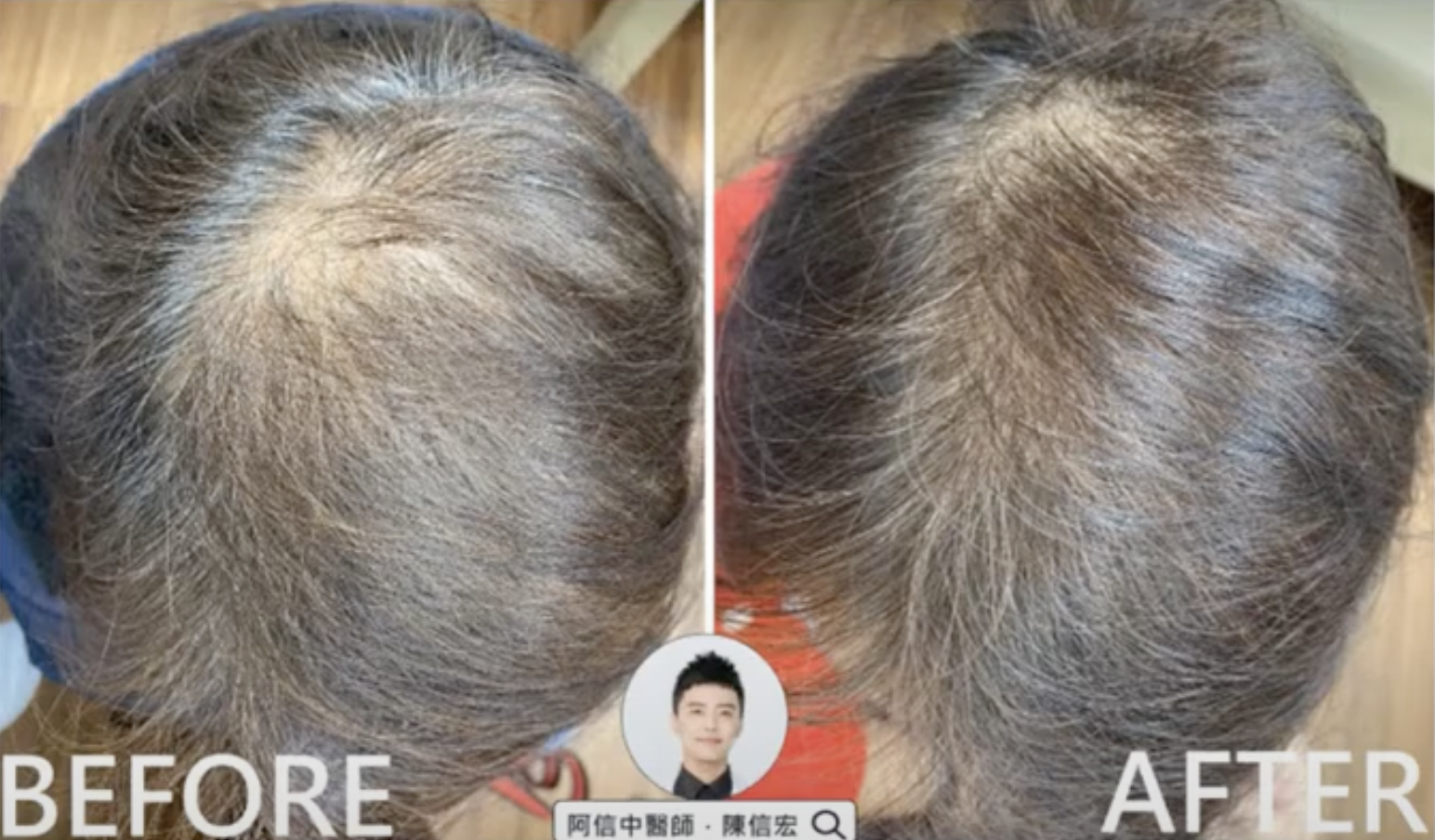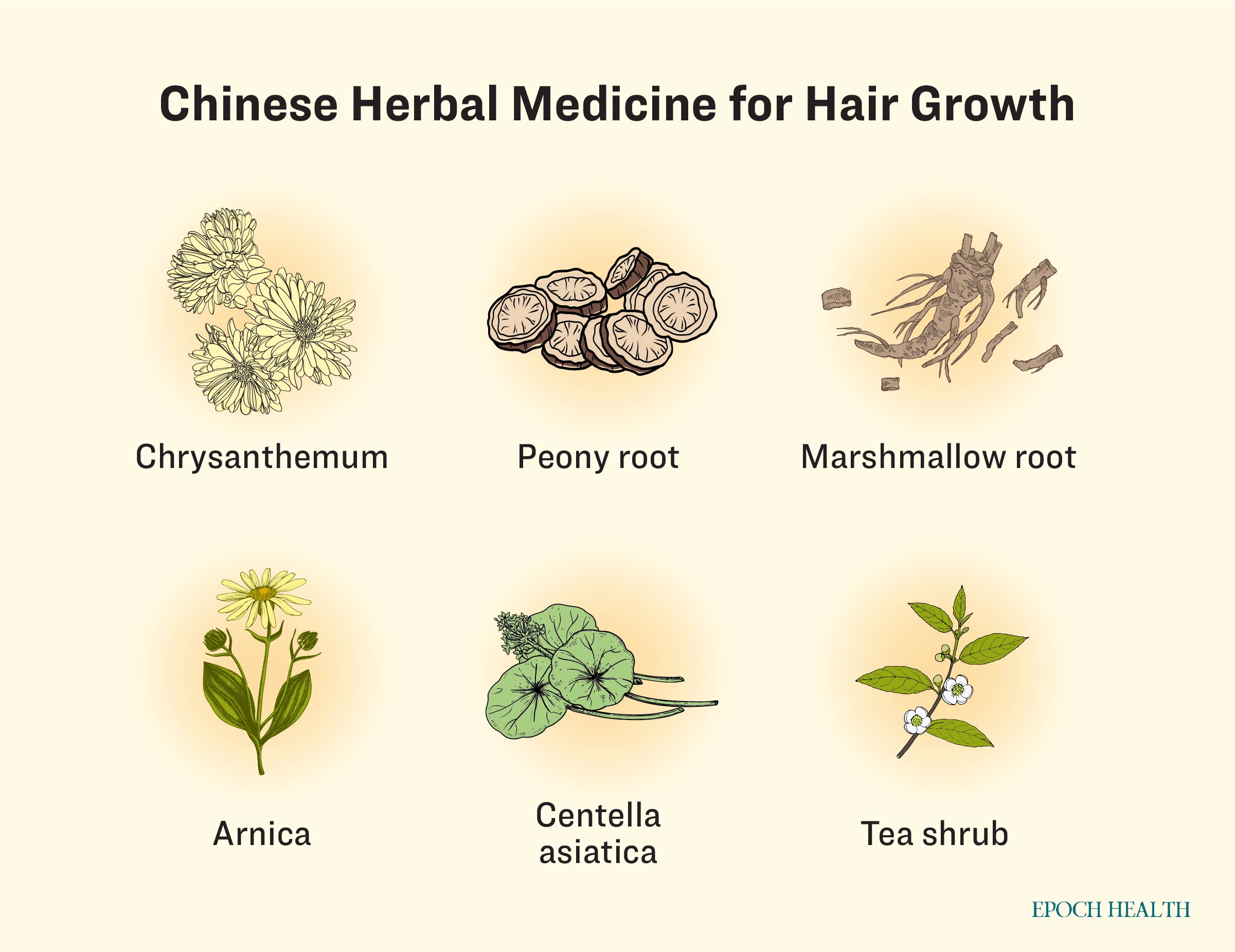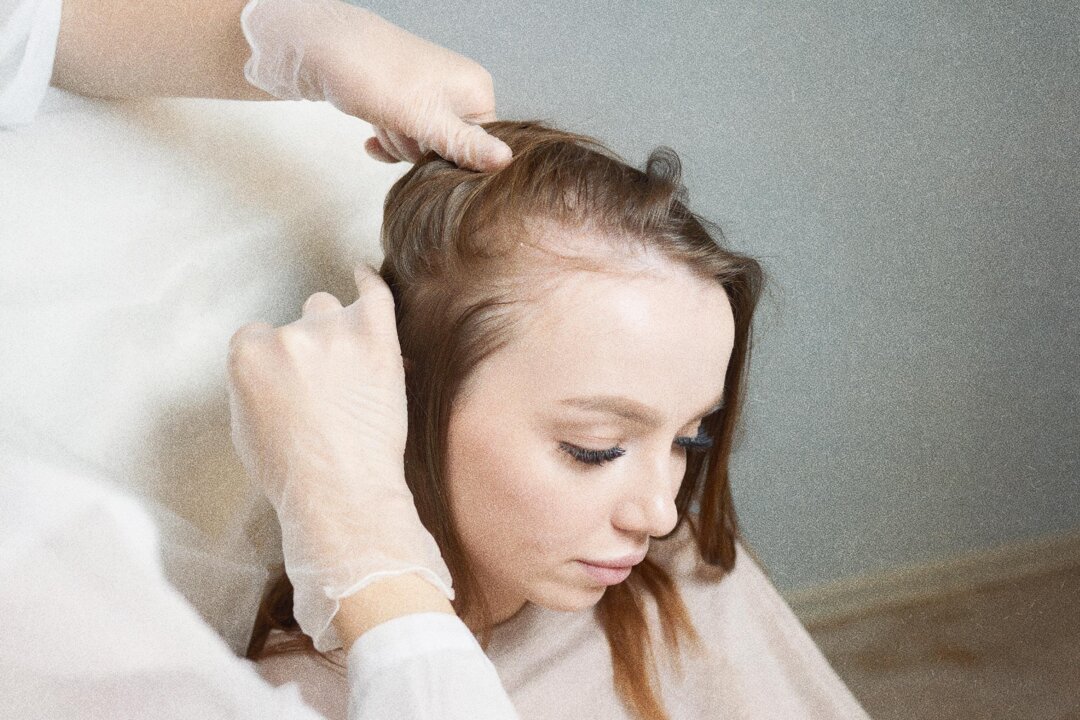Hair health reflects overall physical well-being. Women often experience hair loss due to various causes, including postpartum recovery, menopause, alopecia areata, or scalp issues such as itchiness and dandruff, exacerbated by summer heat. Traditional Chinese medicine (TCM) offers a holistic approach, emphasizing a blend of targeted dietary supplements, meticulous scalp care, and proper hair-washing techniques to reduce hair loss effectively.
Dr. Chen Hsin-hung, a TCM practitioner at Hanyitang Chinese Medicine clinics in Taiwan, shared a case of hair loss. A woman in her 20s developed alopecia areata (patchy baldness) after receiving the COVID-19 vaccine, which left her deeply distressed when her hair almost entirely fell out. Through 6 to 8 months of TCM treatment, she regrew dark, vibrant hair.
Exploring Hair Loss Causes With TCM
From the perspective of TCM, the liver and kidneys are closely related to hair health as they play a vital role in the internal organ-centered energy system.
The liver governs the flow of energy or “qi” throughout the body, and this energy drives blood circulation. When the blood supply is sufficient, it nourishes the hair.
The kidneys store essential substances—often referred to as “jing”—which determine the processes of growth and aging in the body. A deficiency in kidney jing can lead to hair turning white or becoming thin.
Therefore, TCM treats hair loss with herbal remedies that strengthen and nourish the liver and kidneys.
TCM considers hair growth to depend on the nourishment of blood and jing. Chen notes that symptoms of liver blood deficiency often include a pale scalp, a lack of color in the face, deep vertical ridges on the nails, dry eyes, restless sleep, and cold hands and feet. Symptoms of insufficient kidney jing include lower back pain, soreness, and memory decline.
Postpartum Hair Loss Due to Blood Deficiency
Chen shared two case studies of women’s hair loss after childbirth.
A woman in her early 30s suffered significant hair loss one to two months postpartum, with evident thinning at the forehead and brittle, fragile hair. This kind of hair loss is attributed to postpartum blood deficiency, worsened by emotional stress from childcare, which impairs digestive function, reduces nutrient absorption, and further aggravates the deficiency.
Chen administered bloodletting therapy, using fine needles to release small amounts of blood in areas of thinning hair, stimulating scalp regeneration by breaking down and rebuilding tissue. This treatment was combined with a low-level energy laser cap to enhance blood circulation at the base of the scalp, promoting the repair of the scalp and hair follicles.
The patient also took Chinese herbal medicine to balance her constitution, resulting in dense hair regrowth on her forehead and crown after eight months.
Regarding medication, she was prescribed “Eight-Treasure Decoction (Ba Zhen Tang),” which includes key ingredients like ginseng and prepared Rehmannia root, known for nourishing qi and blood, improving blood circulation, and enhancing digestion.
To address the patient’s excessive emotional stress from childcare and work, Chen also prescribed Bupleurum and “Peony Combination (Jia Wei Xiao Yao San)”, a traditional Chinese herbal formula that relieves depression and supports smoother liver energy flow and liver health.
Another postpartum hair loss patient also presented with alopecia areata, characterized by a large bald patch on the crown of the head. Chen’s treatment combined bloodletting therapy to stimulate the affected area with oral administration of “Bupleurum Spreading Decoction (Chai Hu Shu Gan Tang)” to soothe the liver and regulate qi.
After two months of treatment, the patient made a full recovery.
Foods Beneficial for Postpartum Recovery
Chen warns that some women diet to lose weight after childbirth, which can worsen hair loss.
He recommends a balanced diet with sufficient high-quality protein, as hair is primarily composed of keratin, and consuming foods rich in vitamins and iron—especially colorful fruits and vegetables—to support protein synthesis in the body. The following are good options:
- Protein: Eggs, tofu, meat, milk, or soy milk
- Vitamin C: Fruits such as guava, kiwi, or berries
- Vitamin B: Whole grains, dark green vegetables, meat, or liver
- Iron: Red meat, liver, black sesame seeds, or dark green vegetables
The immense stress of childcare can lead to postpartum hair loss, and addressing the root cause is essential. Chen reminds new fathers to share parenting responsibilities to help alleviate the postpartum stress of new mothers.
Temporary hair loss after childbirth is normal, but it’s advisable to monitor recovery within six months. If hair loss persists, consult a doctor to identify any underlying causes.
Treatment for Menopausal Hair Loss in Women
In addition to postpartum hair loss, menopause is another peak period for hair loss in women.
For example, Chen said he had treated a woman in her 50s whose hairline and crown had seriously widened, exposing a yellowish scalp beneath.

After assessing her condition and analyzing her pulse and tongue signs, he identified symptoms of liver blood deficiency, kidney meridian insufficiency, and menopausal female pattern hair loss.
Dr. Chen prescribed “Erzhi Pill,” a classic traditional Chinese medicine formula to nourish the liver and kidneys, combined with “Anemarrhen Rehmannia Eight Formula (Zhi Bai Di Huang Wan)” to regulate hormones.
After six to eight months of treatment, the patient experienced a marked improvement in hair loss.
Studies have shown that Anemarrhen Rehmannia Eight Formula can alleviate menopausal symptoms in women.
8 Daily Scalp Care Essentials
Besides nourishing the liver and kidneys to provide sufficient nutrients for hair, it’s crucial to recognize that the scalp is the foundation of hair—much like soil for nurturing plants.
1. Timely Cleaning
First, pay attention to scalp hygiene, especially in summer. A greasy, dirty scalp can easily harbor bacteria. “Bacteria thrive on our scalp’s oil, dirt, and sebum,” said Chen.
2. Choose Shampoo Wisely
When selecting a shampoo, choose one suited to your constitution and scalp condition. For those who sweat a lot, opt for a highly cleansing shampoo with moisturizing properties to prevent scalp sensitivity.
Chen also notes that the scalp has olfactory receptors. An in vitro study found that shampoos with sandalwood fragrance can stimulate hair follicle growth and reduce hair loss, indicating that a shampoo’s scent can affect the scalp.
Picking a shampoo with a pleasant fragrance can “make the scalp happy,” which may naturally promote hair growth, Chen added.
3. Hair-Washing Technique
For applying shampoo, Chen recommends starting from the sides, then the back, and finally the crown, as the hair on the sides and back is more resistant to irritation, reducing potential damage even with stronger shampoos.
He advises using shampoo twice: the first wash for basic cleansing and the second to let the foam sit on the scalp for one to two minutes, allowing it to soak in. During washing, gently massage the scalp to boost blood circulation.
4. Apply Hair Tonic to Nourish the Scalp
After washing, blow-dry the hair until it’s about 50 percent dry, then apply a hair tonic, treating the scalp like a facial mask. Chen suggests choosing products containing Serenoa repens, also known as saw palmetto, a small palm plant whose fruit extract is widely used medicinally. Studies have shown Serenoa repens can promote hair regrowth.
Other beneficial ingredients include chrysanthemum, peony root, marshmallow root, arnica, Centella asiatica, and tea shrub.

5. Avoid Excessive Heat When Blow-Drying
When blow-drying hair, use a warm, gentle airflow and start from the hair ends, gradually moving to the roots. This reduces damage to the hair during the process.
6. Protect Against Sun Exposure
When going out, protect your scalp from sun exposure to prevent damage. If wearing a hat, choose one with good breathability, such as those made of cotton, linen, or silk, to keep the scalp well-ventilated.
7. Prevent Scalp Infections During Summer
Frequent scalp itching can tempt some people to scratch, which may lead to hair loss. To address this, it’s essential not only to change your scalp care products but also to regularly replace items that come into contact with your scalp, such as helmet liners and pillowcases, to reduce the risk of infection.
A young engineer in his 20s, who wore a helmet daily for commuting, experienced noticeable scalp exposure at the crown during the hot summer—resembling a distinct “typhoon eye.” His hair appeared oily and clumped together in strands.
Chen suggests that treatment involved using “heat-clearing” Chinese herbs to reduce scalp inflammation, alongside regularly replacing the helmet liner to prevent it from becoming a breeding ground for bacteria and viruses.
For summer wellness, Chen recommends staying well-hydrated and incorporating ingredients such as mung beans, coix seeds (also known as Job’s tears), Chinese yam, white hyacinth beans, and pears into your diet.
Maintaining a healthy routine of going to bed early and getting up early is also recommended.
8. Massage the Scalp
Chen recommends massaging acupressure points on the head—such as baihui, fengchi, shenting, and shuaigu—while blow-drying your hair. This practice helps relax the scalp and promotes healthy blood circulation.
[epoch_component type=”photo_gallery” position=”center” section_title=”The Epoch Times” width=”600″ items=”5873866,5873865,5873867,5873863,” image_stays=”false” stays_for_paragraphs=””][/epoch_component]




